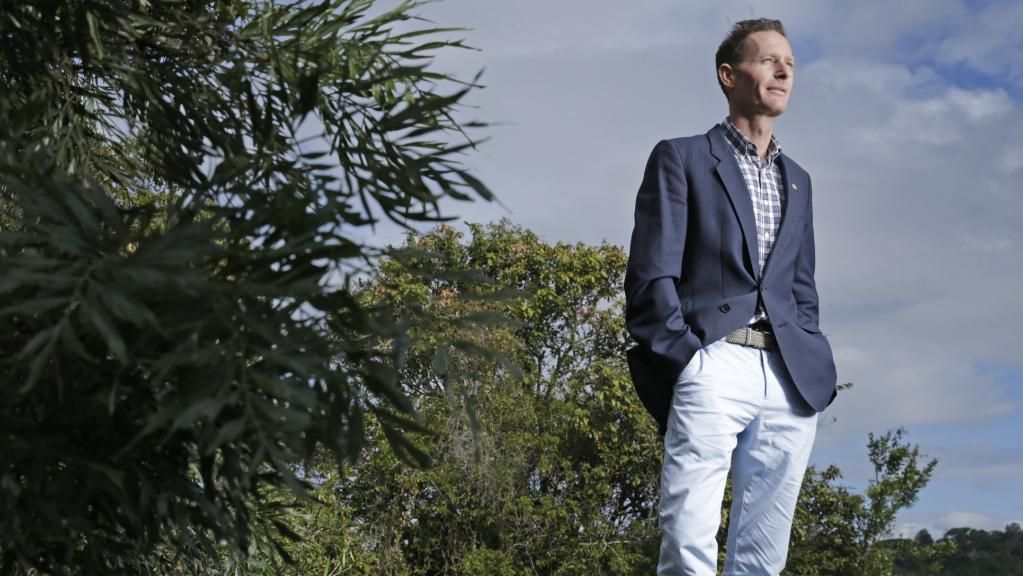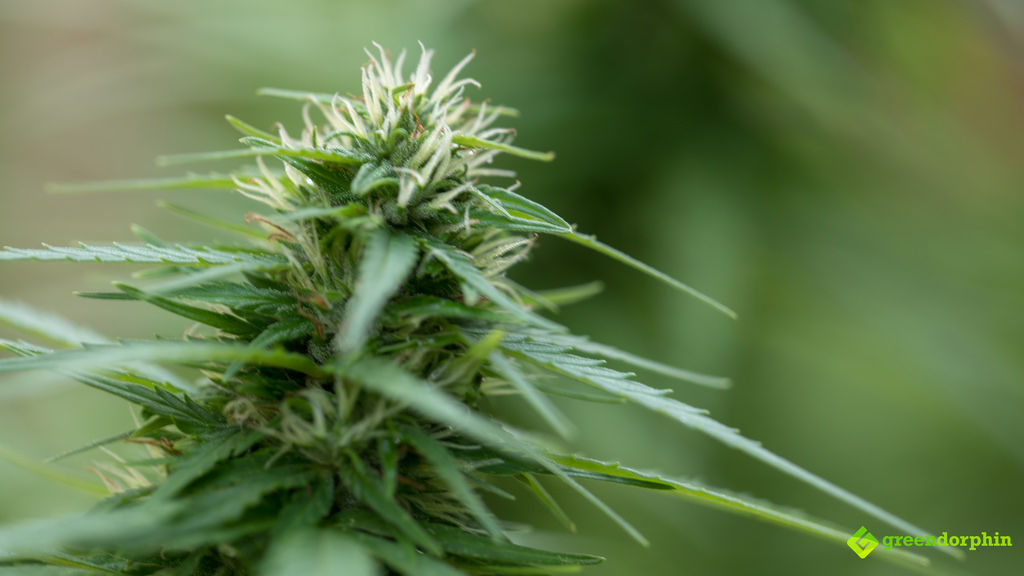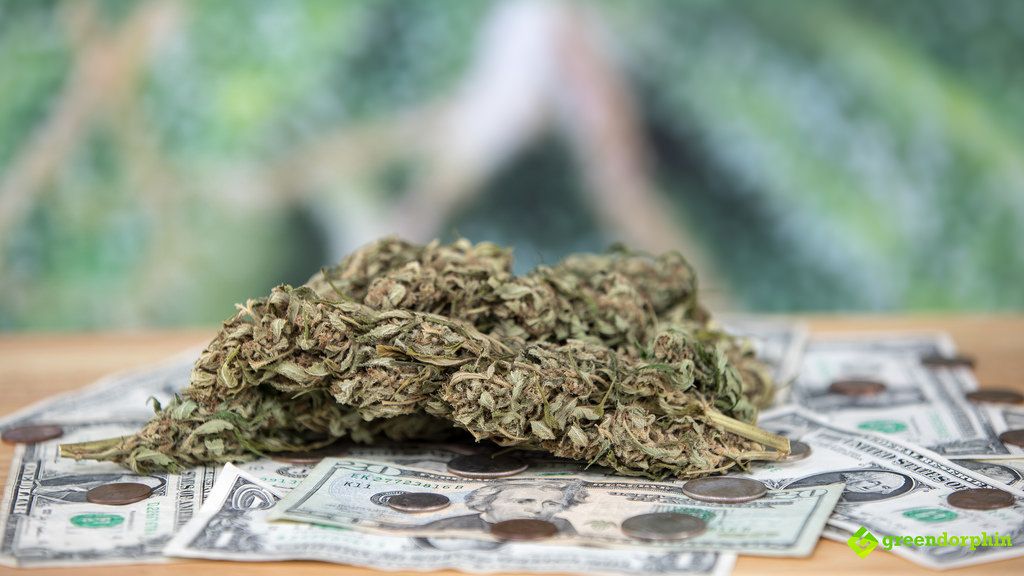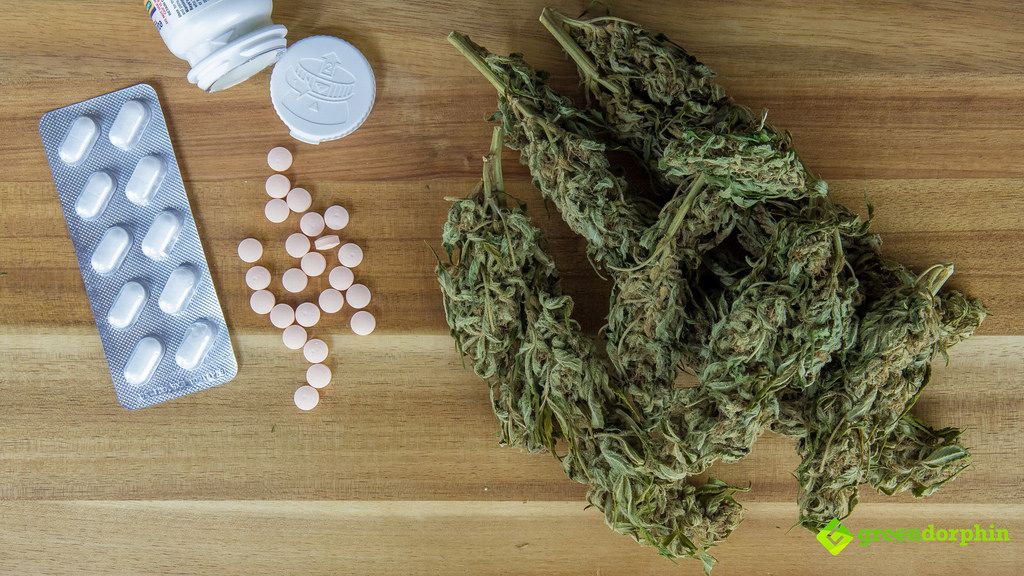Australians have a longstanding relationship with cannabis. A recent poll conducted via the 7-News Facebook page indicated that over 80% of the 300,000 Australian adults that voted did so in favor of legalising recreational use.
While these figures are indicative of the huge market potential that lays dormant for the legal cannabis industry, there is one area we need to get to first that is a matter of great importance: Laying the proper foundations for a nation-wide medical cannabis scheme.

In my interview with Queensland patient Lindsay Carter and his Mum Lanai, it was noted that although medicinal cannabis is currently legal in Australia per se, sourcing a legitimate medical product is still a lengthy and arduous process.
While in the past product has been sent in from Canada, South Africa, and the United States, the logical means of producing research material and medicine for patients lies in our own backyard.
One of the forerunners of the legal medical cannabis movement is Sunshine Coast entrepreneur Adam Benjamin, who I recently had the absolute pleasure of sitting down with for an interview.
 Source: Courier Mail
Source: Courier Mail
Adam’s company MEDIFARM, which is the only proprietary limited medicinal cannabis company in Australia, is one of Australia’s pioneer cannabis conglomerates and one of only a few to be growing medicine for patients on our own shores.
He has been slowly but surely piecing together a medicinal cannabis enterprise that is set to be the best in the world and has done so by establishing a star-studded domestic team as well as partnering with Israeli cannabis company Tikun Olam.
Tikun Olam is best known for their work with the godfather of cannabis and founder of the endocannabinoid system (ECS), Dr. Raphael Mechoulam.

Adam is one of the most compassionate and down-to-earth people I’ve ever had the pleasure of interviewing, and he was able to provide a fantastic insight into the current climate of Australia’s cannabis market.
If you’re a medical professional that’s looking to learn more about medical cannabis, you can check out MEDIFARM’s ‘Medical Cannabis for Health Professionals’ seminar on the 6th of July.
 Source: MEDIFARM Facebook
Source: MEDIFARM Facebook
Adam Benjamin: The MEDIFARM Story
Adam: Perhaps we can start with ‘why are we in this business?’ You know, why this business in particular. And really why we’re in this business is to help patients; the first line being Aussie patients. Because MEDIFARM was created to help Aussie patients, we have to look at the best way to do that. Aside from our medical cannabis products, one of the best ways to help patients is by helping doctors to help their patients – we do this by educating the doctors that will be prescribing what we believe is the most advanced medicine from overseas. In other words, let’s not do a pioneer project ourselves, let’s make sure we’ve got the best guys behind us. And I believe that by partnering up with the longest-standing and most advanced medicinal cannabis company in the world, Tikun Olam, doctors are going to appreciate that the information coming to them is from a reputable source.
Matt: That’s an incredible partner to have, are you guys currently producing a similar product to those being produced by Tikun Olam over in Israel?
A: So the strains that we’ve been experimenting with at MEDIFARM, and the ones that we’re preparing to cultivate, are varieties that have been selectively bred for decades in Tel Aviv for a number of different medical applications. In medical terms, what we’re really encouraged by is that we’re developing a product that has been proven to work. It’s worked in Israel, it’s working in Canada, in Germany, in Greece, and so, for the patient and the doctor to see that they’re being delivered a product that works, the uncertainty or stigmatism surrounding what the medicine is derived from is dispersed a little.

M: Mate, with these Israeli strains that you’re working with at MEDIFARM, what has the process been like to bring them into Australia and get them ready to grow in these conditions?
A: It’s definitely taken a lot of time. We’ve had the facility on the Sunshine Coast for over a year and are only just beginning our first crop now after a lengthy period breeding perfect mother plants for cloning. One of the quite unsettling things about the framework here in Australia is that relicensing takes place each year, and there’s no certainty that your cultivation license will be renewed. For us as a business, what aligns us so well with this framework is that we’ve teamed up with a partner that has the longest standing track record. For other would-be cannabis start-ups, the future could be a lot less certain.
M: Being an Aussie cannabis writer myself I obviously keep up with the news, and to me, it’s always been impressive how much media coverage you’ve garnered, and how many supporters you seem to have amassed. Has the media attention been a big help in boosting your efforts to get a product to market?
A: The media up here, in particular, has been good to us, and the big reasoning behind that I believe is the word cannabis. You can lump it into any argument and people are going to have an opinion, so the media are often quick to report on anything vaguely associated with the word. While I’d love to think that we’re out here raising the ‘number 1’ flag, what we’re really focused on at this point is substance. You know, the media can fixate on how sharp your razor wire is, or how many snipers you’ve got hiding in the bush, but at the end of the day, that’s just their story. I feel that having these products that are proven to work is going to be what pulls us across the line in the end, but the media coverage is very welcome, and I believe their support for MEDIFARM is genuine.

M: It does feel like every day we’re seeing something new in the news about medical cannabis and the laws surrounding it. Do you think it’ll be long until our system will be as regimented as say, Israel?
A: The support is definitely there, we’re coming out of what’s basically been a ninety-year prohibition. If you look at it from the perspective of the prohibition of alcohol, which is a common comparison, this isn’t like that whatsoever, because what’s being prohibited here is actually of benefit to humans. The Australian Government has indicated that there are anywhere upwards of 100,000 people currently using some form of cannabis for medical relief from the black market, so it would be a lot safer and a lot more beneficial for these patients to have access to a proper medicine.
M: Aside from a patient angle, do you think the fiscal benefits of having a domestic cannabis enterprise will help to accelerate the process a bit?
A: It will definitely play a part. People just have to look at Canada and the United States to see how much money is out there to be made, which is ultimately the goal of a cannabis business, like all other businesses.

M: So you foresee the industry here being as big as that of say, Canada?
A: If not as big then definitely similar. We are lucky enough to have one of the best healthcare systems in the world, as well as an amazing reputation for our high agricultural standards. Those two things combined, when you’re looking at exporting, could eventuate in some serious money for the government. It seems to be way bigger (this industry) than any one individual, any one company, any one country almost. It’s really quite amazing. In business, you try and control everything you can, but in this industry, there is so much outside of our control. Now, I’m not that religious at all, but there is something special about this industry and the way everything has been perfectly unfolding. Through all of this, we feel duty bound as a company to the Aussie patients to deliver what they’ve been asking for.
M: Mate, I know that you mentioned an upcoming seminar you guys will be giving to health professionals, are you able to fill me in a bit more on that?
A: Right, well right now while we are still in the cultivation and manufacturing stages we feel that we have to be delivering some sort of other product, as we will only have product available by about Christmas time this year. An approach we’ve taken right now comes from an educational standpoint, and we feel that re-education has to be a massive part of the rollout of legal cannabis as so many doctors and patients are still in the dark. So, on the 6th of July, we’ll be utilising our partner network of doctors and presenters to deliver a symposium that’s strictly for doctors, and that’s based on the facts that Tikun Olam have been able to work out over the past few decades. They have all the patient research, all of the clinical trials, and we feel that’s what doctors are going to want to see. Right now it’s not really about our product, it’s about the enhanced knowledge of medicinal cannabis.

M: I think it’s safe to say that you guys will do a pretty decent job of changing some perspectives and dismissing some doubts. We’ve been a part of a few similar seminars and it always resonates with me how inquisitive the medical professionals in the room often are. I think it’s a fantastic sign of things to come. Have you had any backlash from the medical profession criticising the work you’re doing?
A: There’s always going to be skepticism surrounding medicinal cannabis, even once it’s legalised. It’s been demonised for so long that it’s only natural that a large chunk of people would pick up on societies grievances with cannabis. Looking at it from a doctors perspective, it’s a little bit like a tradie. A tradie has a tool bag, and when some super-duper tool like a nailgun comes out, everyone is quick to tell them to go and pick one up and use it. Now that tradie is pretty comfortable with the hammer they’ve been using for years, so naturally, they’re a bit hesitant to switch over to the new technology. Jumping back to the doctor analogy, the doctor knows that there are patients that are in pain so intense that none of the tools that we currently have will work. And Doctors are scratching their heads trying to think of what medicine to prescribe, and all of a sudden, someone presents them with something that not only doesn’t look like medicine but has also been called a harmful drug for years. So what we’re trying to do at this stage is provide those doctors with the tools they need, and tell them how and why to use them.

M: Throughout your time working at MEDIFARM, have you been able to witness firsthand someone that’s benefiting from using cannabis medicinally?
A: We are constantly being approached by patients that tell us to what degree cannabis has helped them with their illness, which is definitely very humbling to hear as it lets us know that we’re on the right track. I think that has been the whole difference-maker in this situation. These patient advocates have really become the lifeblood of the whole legalisation movement. That’s why there’s something bigger than all of us in this business. That’s why this has got the momentum. It’s not because the politicians want the laws changed. It’s not because someone thought, ‘Hey, let’s do this because it’s going to make a heap of money’. It’s the patients and the strength of those patients and support for their wellbeing that have really driven this, and it’s amazing.

Adam’s heartfelt quest to deliver knowledge and extreme sentiment were the things that shone through to me most from this MEDIFARM interview. To think that there are people of Adam’s calibre on the side of legalisation is a very heartening thing.
At Greendorphin we hear from countless executives and medical professionals about the undying need for national re-education on the topic of medicinal cannabis, and take great pride in being able to spread the word about such events.
If you’re a medical professional and are interested in attending the MEDIFARM Medicinal Cannabis Seminar at the Sunshine Coast on the 6th of July 2018, you can register for the event here.

- Dr John Teh & PlantMed Medicinal Cannabis Clinic: Greendorphin News Podcast #1 - February 7, 2019
- Anatomy of the Cannabis Plant: Grow with Greendorphin - December 6, 2018
- High Hemp Organic Wraps Review CBD+ [VIDEO] - November 26, 2018

